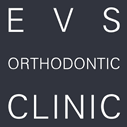
About orthodontics
What is orthodontics?Orthodontics is the branch of dentistry that specializes in the diagnosis, prevention and treatment of dental and facial irregularities. The technical term for these problems is "malocclusion," which means "bad bite." The practice of orthodontics requires the professional skill in the design, application and control of corrective appliances (braces) to bring teeth, lips and jaws into proper alignment and achieve facial balance.
Why is orthodontics important?
Orthodontics helps an individual to effectively bite, chew and speak. Straight teeth contribute to healthy teeth and gums. Properly aligned teeth and jaws may alleviate or prevent physical health problems. Teeth that work better also tend to look better. An attractive smile is a pleasant “side effect” of orthodontic treatment.
An attractive smile is a wonderful asset. It contributes to self-esteem, self-confidence and self-image—important qualities at every age. A pleasing appearance is a vital component of self-confidence. A person's self-esteem often improves as orthodontic treatment brings teeth, lips and face into proportion. In this way, orthodontic treatment can benefit social and career success, as well as improve a person’s general attitude toward life.
There are psychological aspects that are also important. It has been clinically proven that a beautiful smile leads to higher self-esteem. Confidence generates success. People with beautiful smiles have a lot to be happy about.
Who is an Orthodontist?
Your orthodontist is a specialist in the diagnosis, prevention and treatment of dental and facial irregularities. Orthodontists must first attend college, then complete a 4 year graduate program at a dental school in a university or other institution accredited by the Canadian Dental Association. They must then successfully complete an additional residency program of at least two-three academic years of advanced education in orthodontics, again accredited by the CDA. This advanced training includes such diverse studies as genetics, embryology, human growth and development, and biophysics. Only dentists with this advanced specialty education can present themselves as orthodontists.
What are the benefits of Orthodontics?
In fact, the results are more than you can see.
You already know that braces straighten teeth. But what you may not know is that a beautiful smile is just one of the benefits orthodontics has to offer. Bringing teeth, lips and jaws into proper alignment not only produces a great smile, but a healthy one as well. Straight teeth simply function better and are easier to clean. And last but far from least is the increased confidence and self-esteem that a healthy smile provides. This psychological benefit can be a significant factor in the decision to undergo treatment and is often listed as a patient's #1 treatment goal. A beautiful smile is a pleasure to own and a pleasure to see.
An attractive smile is just the start. Improved oral health and general well-being are also important treatment goals.
